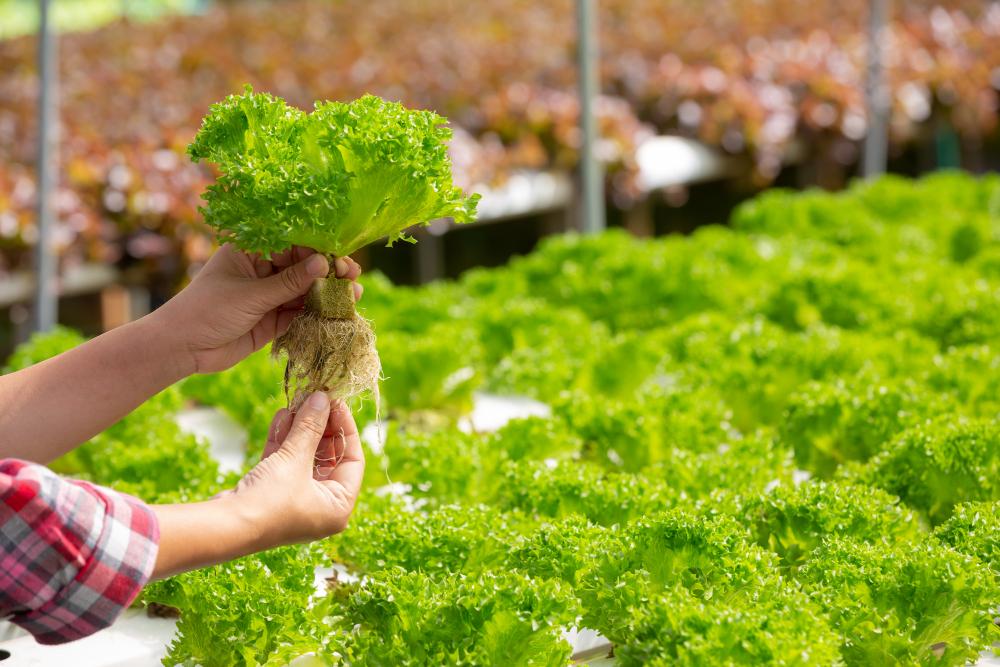Precision agriculture, also known as precision farming or smart farming, is an innovative approach that leverages technology to optimize agricultural practices. This revolutionary concept has gained significant traction in recent years, enabling farmers to make data-driven decisions, enhance productivity, and minimize resource wastage. By employing advanced technologies and analytics, precision agriculture has transformed traditional farming methods into efficient and sustainable systems. This article explores the various ways in which technology is revolutionizing farming through precision agriculture.
Introduction:
Role of technology in revolutionizing farming: Technology has brought about significant advancements in the agricultural industry, transforming traditional farming practices.
IoT and Sensors
A. Introduction to IoT: The Internet of Things (IoT) is a network of interconnected devices that play a crucial role in agriculture.
B. Sensor applications in farming: Sensors are used in agriculture for tasks like monitoring soil moisture, temperature, and livestock tracking. C. Advantages of IoT and sensors in agriculture: IoT and sensors enable real-time data collection, farm operation monitoring, and informed decision-making.
Drones and Robotics.
A. Role of drones in agriculture: Drones have emerged as valuable tools for various agricultural applications.
B. Agricultural applications of drones: Drones are used for crop monitoring, mapping, and precise spraying, among other tasks. C. Benefits of drones and robotics in farming: Drones and robotics enhance crop management, save time and labor, and improve overall efficiency.
Vertical Farming and Indoor Agriculture.
Concept and technology behind vertical farming: Vertical farming involves growing crops in vertically stacked layers using advanced technologies.
Benefits of vertical farming: Vertical farming offers benefits like efficient land use, year-round production, and reduced resource consumption.
Biotechnology and Genetic Engineering.
Biotechnology has made significant contributions to the agricultural industry.
Genetic engineering modifies plants and crops to enhance desirable traits.
Advancements and benefits in farming: Biotechnology and genetic engineering provide benefits such as disease resistance, improved crop characteristics, and enhanced nutritional content.
Why Farmers shoud consider Hydroponic Farming!
Hydroponic farming, a soil-less method of agriculture, offers several compelling reasons for farmers to consider implementing it. Here are some key points:

Efficient Resource Utilization:
- Hydroponic systems allow for precise control over nutrient delivery to plants, ensuring optimal growth and minimizing waste.
- Water usage is significantly reduced compared to traditional farming methods, as hydroponics employs recirculation systems and minimizes evaporation.
Maximized Crop Yields:
- Hydroponic farming enables year-round cultivation and multiple crop cycles in controlled environments, leading to increased productivity and faster growth rates.
- Plants grown hydroponically tend to experience fewer diseases and pests, resulting in higher crop yields and reduced losses.
Space Optimization:
- Hydroponics allows for vertical farming, making efficient use of limited space by stacking plants vertically.
- This method is particularly beneficial in urban areas or regions with scarce land resources, enabling farming in small, confined spaces.
Environmental Sustainability:
- Hydroponic systems consume less water and eliminate the need for soil-based chemical fertilizers, reducing environmental impact.
- Controlled environments minimize the use of pesticides and herbicides, promoting sustainable and organic farming practices.
Enhanced Crop Quality:
- Hydroponic farming facilitates greater control over growing conditions, such as light, temperature, and nutrient levels, resulting in consistent, high-quality crops.
- The absence of soil-borne diseases and contaminants ensures cleaner and safer produce.
Year-Round Production:
- With hydroponics, farmers can cultivate crops regardless of seasonal limitations, enabling a steady and reliable supply throughout the year.
- This constant availability can lead to increased market opportunities and consistent revenue streams.
Efficient Labor and Time Management:
- Hydroponic systems automate many aspects of plant care, reducing labor requirements and allowing farmers to focus on monitoring and managing the system.
- The controlled environment minimizes manual tasks, such as weeding and watering, saving time and improving operational efficiency.
Potential for Higher Profit Margins:
Despite the initial investment in equipment and infrastructure, hydroponic farming can yield higher profit margins due to increased crop yields, year-round production, and market demand for fresh, locally-grown produce.



Leave A Comment